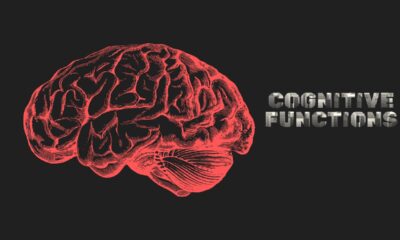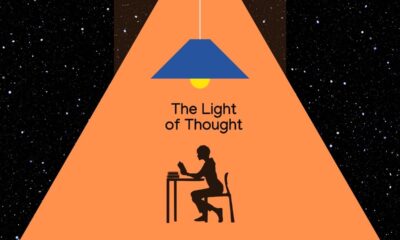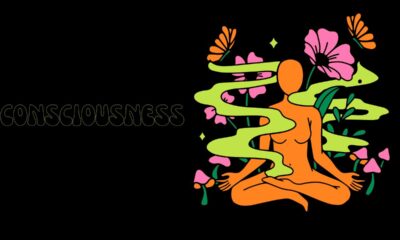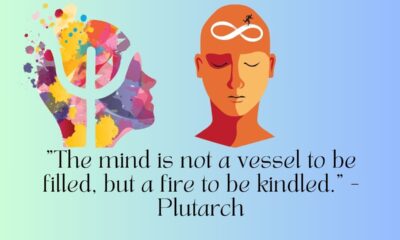MIND
What is mind?
The mind is a complex and multifaceted aspect of human consciousness and cognition. It encompasses various mental faculties such as perception, cognition, emotion, memory, and reasoning. While the exact nature of the mind is still a subject of philosophical and scientific inquiry, it is generally understood as the sum total of all mental processes and activities that occur within the brain and nervous system. The mind allows us to perceive, interpret, and interact with the world around us, as well as to experience and regulate our emotions, thoughts, and behaviors.
The philosophy of mind explores the nature of the mind, consciousness, mental processes, and their relationship to the physical world. Here are some key concepts and perspectives within this field:
- Dualism: This perspective posits that the mind and body are distinct entities. René Descartes famously proposed this view, suggesting that the mind (or soul) is non-physical and distinct from the body.
- Monism: Monism holds that the mind and body are ultimately one substance. There are different forms of monism:
- Materialism/Physicalism: This view asserts that only physical matter exists and that mental states are ultimately reducible to physical processes in the brain.
- Idealism: Idealism suggests that the mind is the primary reality, and the physical world is either a manifestation of the mind or doesn’t exist independently of mental phenomena.
- Functionalism: Functionalism focuses on the functions of mental states rather than their underlying physical properties. According to this view, mental states are defined by their causal roles in the cognitive system.
- Identity Theory: Identity theory proposes that mental states are identical to specific brain states. For example, pain might be identical to a certain pattern of neural firing in the brain.
- Eliminative Materialism: This radical view suggests that common-sense mental concepts (like beliefs, desires, etc.) will eventually be eliminated from scientific explanations of behavior. Instead, they’ll be replaced by a more accurate understanding of neurobiological processes.
- Panpsychism: Panpsychism posits that consciousness or mind is a fundamental aspect of the universe and is present in all things, not just living beings. It suggests that consciousness is a fundamental property of matter, similar to mass or charge.
- Epiphenomenalism: This view suggests that mental states are byproducts of physical processes in the brain and have no causal influence on physical events. In other words, consciousness is a passive side effect of brain activity.
- Neutral Monism: Neutral monism proposes that there’s one underlying substance or reality that can manifest as both mental and physical phenomena. Mental and physical properties are two different aspects of this underlying substance.
These are just some of the major theories and perspectives within the philosophy of mind. Each offers different insights into the nature of consciousness, the mind-body problem, and the relationship between mental states and physical processes.

MIND
Complexities of mental processes

The complexities of mental processes encompass a vast array of cognitive functions, emotions, and behaviors that shape human experience. From basic sensory perception to higher-order thinking, memory, and decision-making, the workings of the mind are intricate and multifaceted. Cognitive psychologists study these processes to understand how information is processed, stored, and retrieved in the brain, revealing the intricate mechanisms underlying human thought and behavior.
For example, the process of memory involves numerous stages, including encoding, storage, and retrieval, each of which can be influenced by various factors such as attention, emotion, and context. Memories are not stored as exact replicas of past experiences but are reconstructed based on available information and influenced by biases and expectations. This complexity is evident in phenomena like false memories, where individuals vividly recall events that never occurred, highlighting the intricate interplay of perception, cognition, and memory.
Moreover, the study of mental processes extends beyond individual cognition to include social and cultural influences on behavior. Social psychologists explore how interpersonal dynamics, societal norms, and cultural values shape thoughts, emotions, and social interactions, revealing the intricate ways in which the mind is influenced by the social environment. These complexities underscore the richness and depth of human psychology, highlighting the need for interdisciplinary approaches to understand the intricacies of mental processes.
MIND
What the mind truly is?

The question of what the mind truly is has been a subject of philosophical inquiry, scientific exploration, and spiritual contemplation for millennia. While various disciplines offer different perspectives, there is no definitive answer, as the nature of the mind remains elusive and multifaceted. Some view the mind as a product of the brain’s neural activity, responsible for cognitive functions such as perception, memory, and reasoning. From this perspective, the mind is intricately linked to physical processes within the brain, and its complexities can be studied through neuroscience and psychology.
Alternatively, spiritual and philosophical traditions often conceive of the mind as more than just a byproduct of biological processes, but as a higher consciousness or transcendent aspect of human existence. In these frameworks, the mind encompasses not only cognitive functions but also emotions, intuition, and spiritual awareness. For example, in Eastern philosophies like Buddhism and Hinduism, the mind is seen as the seat of consciousness, capable of transcending the limitations of the physical body and connecting with universal truths. Similarly, in Western philosophical traditions, thinkers like René Descartes have posited that the mind is distinct from the body, existing as a thinking, self-aware entity independent of physical existence. These diverse perspectives reflect the complexity and mystery surrounding the true nature of the mind.
MIND
Abstract idea about Mind

Abstract ideas about the mind involve conceptualizations that transcend concrete, tangible manifestations, delving into the realm of philosophy, psychology, and spirituality. These ideas explore the nature of consciousness, thought processes, emotions, and the self, often grappling with questions that have puzzled philosophers and scholars for centuries. Rather than focusing solely on observable phenomena, abstract notions about the mind contemplate its intangible aspects, such as subjective experiences, free will, and the nature of reality itself.
For instance, the concept of the mind-body problem, which examines the relationship between the physical brain and the subjective experience of consciousness, is a quintessential abstract idea about the mind. It raises profound questions about the nature of identity, the origins of thought, and the existence of a separate realm of mental phenomena beyond the physical world. Similarly, theories of the unconscious mind, popularized by Sigmund Freud and Carl Jung, propose that much of human behavior and experience is influenced by hidden, subconscious processes that shape our thoughts, emotions, and behavior without our conscious awareness. These abstract ideas challenge conventional understandings of the mind and invite contemplation of its deeper mysteries.
















